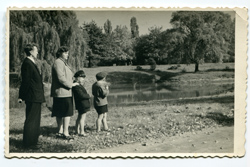How families pass on a sense of history
The aim of the 'Britons and their past' (BATP) project is to shed light on the way in which individuals connect to the past through their family history. According to research from Australia and the United States, the transmission of family history is the most trusted form of historical knowledge. Project partners used a random sample from the list of voters from two parliamentary constituencies in the southwest of England to contact possible interviewees. The electorates were chosen for their different socio-economic profiles. One constituency was mostly rural while the other was a in a working class area of a large city. Twelve families ranging from four to two generations were identified and interviewed by BATP researchers. Questions directed at the interviewees were concerned with different ways of passing family lore between generations. They included specific objects such as furniture, books and documents or key sites such as former residences or places of burial. Another way in which family history can be communicated was through oral tradition. Stories about the past varied widely between families, but overall were used more often than material objects to pass on a family's history. The exception was when the early death of a member left a gap in a families' collective memory. Stories tended to be optimistic and emphasised the positive, such as worthwhile character traits or important life lessons. Negative stories regarding past experiences acted as warnings or guides to behaviour. Researchers have found that the intangible heritage within a family, such as its oral history is more important than previously believed, with the family acting as a lens through which the individual connects their own experiences with historical structures and events. The BATP initiative also reveals the role played by narratives in shaping the historical consciousness of individuals and the way in which they link the past with the present and future. The work of BATP was a pilot project for a larger survey of oral history and national consciousness. The findings from BATP can be used to help people engage more actively with their history than they have up till now, thereby helping to develop their sense of identity.







